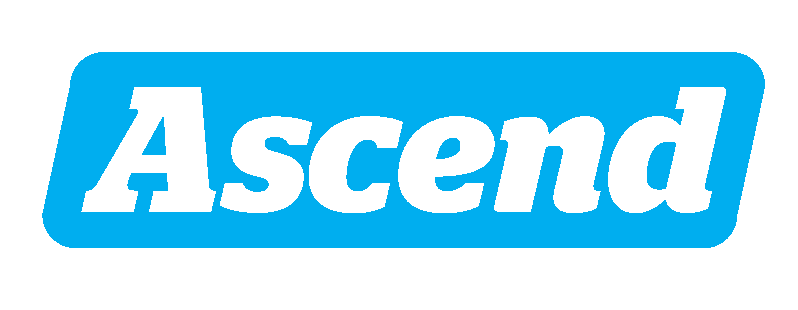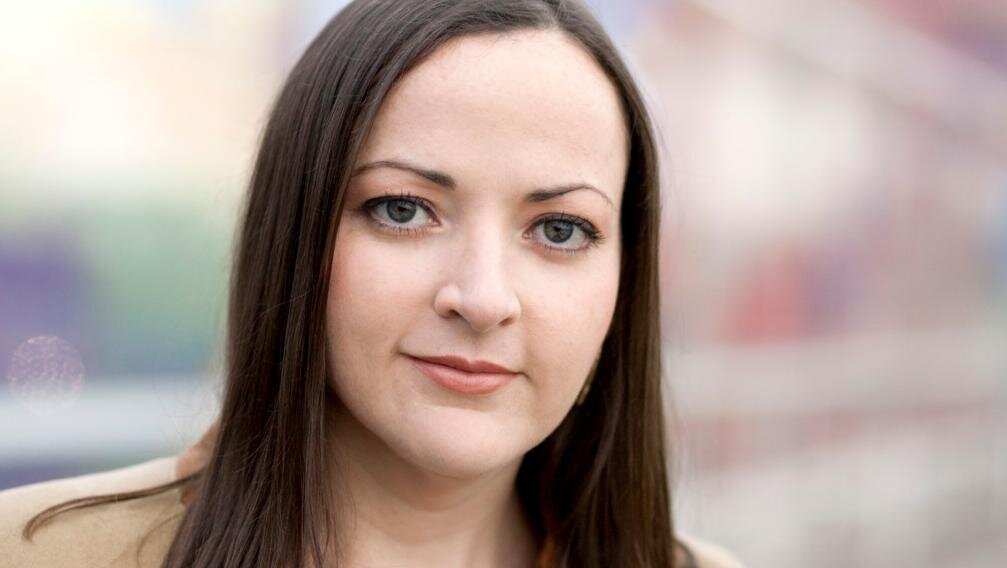Five years ago, the late Paul Allen and Professor Oren Etzioni launched a commercialization arm of the Allen Institute for Artificial Intelligence. They gave Jacob Colker, Vu Ha, and Bryan Hale a blank slate and a one-line mandate: Build an incubator program to help the brightest minds in AI to start the next wave of world-changing technology companies. From a one-room office, Jacob and the team (shout outs to James Allard, Jen Dumas, Jackie Moe, and Brian Fling) have grown an unrivalled center of excellence for AI entrepreneurship. I had a front row seat for the evolution of the AI2 Incubator as a lucky advisor, learned a ton from Jacob along the way, and am really glad Jacob shared his story with Ascend here.
What made you decide to be a professional investor?
I spent many years as a founder and operator before a coffee with Chris DeVore helped me understand that venture investing was the perfect fit for me. But even if you are lucky enough to discover your true calling, few people will “just hand you” millions of dollars to invest. You have to build the case over many years, and work hard to earn the trust of LPs, and I’m fortunate that Dr. Oren Etzioni took a chance on me.
There are three reasons why I choose to be an investor:
1) Founders are my kind of people — They are crazy, driven, inspired, brilliant, and full of vision. And simply, I love being around these kinds of people. To me, there are few things more powerful than someone who is truly motivated to solve a problem with the hustle and drive of an “entrepreneurship-in-their-veins” founder. We are privileged to have such a wonderful community of entrepreneurs like this in the AI2 Incubator, with more joining every month.
2) I truly love innovation — Artificial intelligence is powerful technology that is broadly applicable to numerous industries and fields. As a managing director at one of the world’s leading A.I. incubators, I get to learn about new business ideas and industries almost every week. These eclectic experiences offer an opportunity to see the world from a unique perspective, as many of these elements often map together in peculiar ways. This kind of continuous learning makes me come alive and it makes me better at advising our teams, as I can offer the best learnings/advice taken from a whole host of industries, business models, GTM strategies, technologies, and more.
3) In my heart, I’m a teacher — If I didn’t have a career in entrepreneurship, I’d be a teacher. But it turns out that being an investor is the best of both worlds. Before I joined the Allen Institute for Artificial Intelligence, I was fortunate to spend six years teaching entrepreneurship in the MBA program at the University of Washington Foster Business School. During that time, I had hundreds of MBA students come through my classes and I loved every minute of it. It turns out that being an investor and board member is not that different from being a professor: You roll up your sleeves everyday and do your best to offer sage advice, be a sounding board, help solve problems, and guide the professional development of people who have put their trust in you. And of course, when one person teaches, two people learn. So I get to feed my own algorithm everyday and get smarter/better at my job with each conversation.
What did you do before becoming an investor and how does that benefit your founders?
I’m a founder myself—with expertise in marketing/GTM, sales, partnerships, business model design, and fundraising strategy. I’ve typically been the person that pairs with a technical founder to take a novel technology to market.
Previous to my work at the Allen Institute for Artificial Intelligence (AI2), I wore every non-technical hat in a startup (CEO, CMO, GM, Founder). I started collaborating with technical minds using data mining in 2006, crowdsourcing in 2008, and machine learning in 2011. And at AI2, I get to partner with the researchers here that are pushing the boundaries of computer vision, speech, NLP, and deep learning.
But more than anything else, I get it, and I’ve likely been there before. There’s an old saying that “healthcare professionals marry healthcare professionals” because they’re the only ones who really get it. A spouse who also works in healthcare gets it won’t hold it against you for cancelling dinner plans at the last minute, because you had a patient crashing and couldn’t leave. Other doctors or nurses understand what you’re going through. I think the same is true for entrepreneurship.
● I know what it's like to quit your job (or work endless nights/weekends) and bet your financial well-being and personal reputation on the product vision in your head. And yes, it’s normal to wonder if that vision is really a hallucination.
● I know what it's like to jump on that red eye flight to New York to go close that customer with a last minute in-person push, because that’s what it takes to get the job done that week.
● I know what it's like to be three weeks from an empty bank account, worrying if you’re going to make payroll, because several of your employees have mortgages and kids.
● I know what it's like to do 16 versions of a pitch deck, only to toss it out and start all over again.
● I know what it’s like to be told “no” by 24 VCs. Or have cofounders leave at the worst moments. Or to get threatened with a lawsuit. Or have your brilliant go-to-market plan not work out after weeks of planning and research.
● I also know the incredible feeling that comes from finally finding product market fit. Or when your bank account stops decreasing from monthly burn and starts increasing from revenue. Or looking out across the many desks in your office and realizing just how many jobs you’ve helped to create. And, I know what it’s like to finally see a company that you’ve spent years helping to build—exit for many millions of dollars.
I’ve been there. I get it. And I can help you work through it.
Why should founders want you on their cap table?
I do all of my investment work alongside our extraordinary team at the Allen Institute for Artificial Intelligence, and the entrepreneurs or startups that take investment from us are able to tap into six truly unfair advantages.
1) A.I. research expertise — Google has DeepMind, Facebook has FAIR, and Microsoft has MSR-AI. But these A.I. research groups are designed for the benefit of these big companies—not fledgling young startups. The AI2 Incubator is part of the Allen Institute for Artificial Intelligence, with over 175+ A.I. PhDs, researchers, engineers, and support staff. Our institute is one of the only places in the world where early-stage startups or entrepreneurs can get mentorship from the same caliber of A.I. talent employed by giant tech companies.
2) Applied A.I. expertise — There are now 20,000+ new A.I. papers published annually on Arxiv.org. But there’s a big difference between being able to read a research paper and being able to practically integrate that research into a new product. Our teammates at AI2 have collectively built many dozens of AI-first products and have tremendous expertise with the pitfalls and challenges of doing applied A.I. the right way.
3) Recruiting pipeline (A.I., engineering, and business) — We guarantee that you will meet at least one cofounder or first hire through AI2. In fact, in the last 18 months, 75% of all our startups’ founders or first hires were a direct result of the AI2 network, with 100% of teams successfully finding a teammate here. We can deliver these results because over 11,000+ people apply to jobs at AI2 each year and many tens of thousands more spend time on our career page, LinkedIn job post network, come through our word-of-mouth network, and more. We are exceptionally good at helping to place top A.I. talent on teams and are equally capable of finding experienced business entrepreneurs to match with A.I. founders.
4) Pre-seed expertise — We live at “whiteboard early,” and over the last five years, we’ve helped dozens of founders to go from the whiteboard to a successful multimillion dollar venture funding round… again, and again, and again. In fact, two thirds (66%) of entrepreneurs that formally join our incubator end up raising a multimillion dollar seed round.
5) Community — Building a company is hard, but it’s a lot easier when you have a “village” of people surrounding you as cheerleaders, thought partners, drinking buddies, BFFs, and network amplifiers. That’s what happens when founders join our incubator. Almost overnight, entrepreneurs get access to a vibrant and intimate community of people who want them to succeed. It's “fellowship” at its very best.
6) Paul Allen network — The Pacific Northwest continues to benefit from Paul Allen’s incredible legacy and many years of contributions to our community, that extend well beyond being the cofounder of Microsoft. The Allen Institute for A.I. is part of Paul Allen’s Vulcan: A vast network of organizations that includes the Seattle Seahawks, Portland Trailblazers, Allen Institute for Brain Science, Allen Institute for Cell Science, Allen Institute for Immunology, Vulcan Capital, Vulcan Real Estate, the MoPOP Museum, the Allen School for Computer Science and Engineering at the University of Washington, and more. Our “part of the family” relationship with these amazing organizations has helped our entrepreneurs to get introductions to customer discovery contacts, facilitated learning opportunities, potential pilot customers, and more.
How many new pitches (actual calls/zooms) do you take per month?
I took 249 first coffees in 2020—or about five per week. (Thanks to Calendly for the data!)
How many new investments do you make per year? What's your sweet spot(s) in terms of check size, valuation, and vertical?
We are an AI-first, pre-seed incubator, so everything we do falls into that thesis. We do 10-20 pre-seed investments each year, ranging from $100,000-$900,000. These range from individual entrepreneurs who need a year to figure out a new startup, or a pre-seed company starting to gain some early traction.
What do you think the next ten years looks like for Seattle/Pacific Northwest startups?
Oren Etzioni and I wrote an article in October of 2019 that we still believe holds much truth. Despite the pandemic, I remain incredibly bullish on what we are going to accomplish together as a region. I’m “all in” on Seattle.
What song is currently getting the most run on your Spotify/Apple Music?
I’m obviously biased ;-) but shameless self promotion… Recently, my old songwriting partner (Nick King) and I launched a new music project called “King//Colker” as a fun creative outlet during the pandemic. Our first single 'Not Alone' just hit 500,000+ plays on YouTube. Apparently, we’re “huge” in Mexico City. 😂
Favorite shoes?
Snorkel fins.
Favorite cooking ingredient?
Mazi 401.










